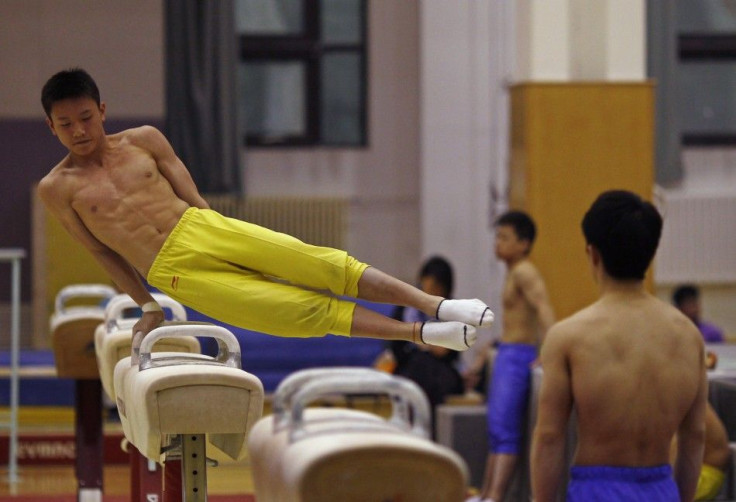London Olympics 2012: China's Gold Medal Pride Tempered

(Reuters) - When Chinese athletes swept to the top of the gold medal table during the 2008 Beijing Olympics, the feat was accompanied by a wave of national pride, the culmination of China's 100 year dream to host the world's most prestigious sports event.
Whether China can repeat that feat at this year's London Games will surely be watched closely by all. But cooler heads may prevail at home if that success is not repeated as China has been buoyed by the country's other achievements since hosting the Games, such as its bounding economy.
I'm not sure it is now as politically important as it was, since they did it once, said Susan Brownell, professor of anthropology and expert on Chinese sports at the University of Missouri-St. Louis.
The simmering debate over the importance of the pursuit of medals began to heat up after the Beijing Games ended in success. There appeared to be acknowledgement the country lacks a broad-based sports culture and Olympic medals are generally won by a minority of government-supported athletes, raising questions over whether it can become a sports power, she said.
So I do have the feeling that with the great success of the Beijing Olympics, at least domestically it was hugely successful, that it's not so important to prove themselves any more, she added.
But why was it so important all along? It had to do with the idea of China standing up against domination by the West ... hosting the Olympics was called China's 100-year dream.
This is, of course, not to say that China will not be trying to win as many golds as it can in London.
China has not slackened off in its Olympics medals quest. Nor has the state even begun to back off from its involvement in producing national winners.
THE CRADLE OF WORLD CHAMPIONS
At the state-run Shichahai sports school, located in central Beijing not far from the top leadership compound at Zhongnanhai, the government begins training young athletes from as young as 6.
Dubbed the cradle of world champions in a gold-embossed stone plinth outside one of its entrances, the school has raised 39 world champions and seven Olympic ones. Large Chinese flags dominate the austere gyms and other training rooms.
Slogans reminiscent of the heyday of Chinese communism pasted around the campus exhort athletes not to forget that All training is for competition and There are no heroic individuals, only heroic groups.
It is a spirit the school's head, Shi Fenghua, has no intention of abandoning.
Competing peacefully like this as the Chinese nation is rising, confirms our abilities. China was once the sick man of Asia, Shi told Reuters in her office.
But Chinese sports officials are keen to temper expectations.
I have complete confidence in our team at the London Olympics, but there are many, many difficulties, said Cui Dalin, former deputy head of the State Administration of Sport, which answers directly to China's cabinet.
Firstly, we were the host nation during the Beijing Olympics, doing battle on home turf, while in London we will be the guests. There's the time difference, the different food and a different environment from Beijing, he told Reuters.
There also will be many new and somewhat untested faces competing in London, Cui said, citing table tennis champions Wang Nan and Zhang Yining among those who have now retired.
It will be a handover from the old to the new. Whether the young athletes can get through the test of such an enormous event as London, we will have to see what they can do.
Perhaps ironically, the official discussion of China's medal hopes in London echoes that in the run up to Beijing - when officials routinely would play down the country's prospects and play up its challenges.
By the time the Games closed on August 24 2008, China had earned 51 golds, leapfroging the United States' 36 golds and topping the medals table for the first time.
(Editing by Ossian Shine)
© Copyright Thomson Reuters 2024. All rights reserved.












